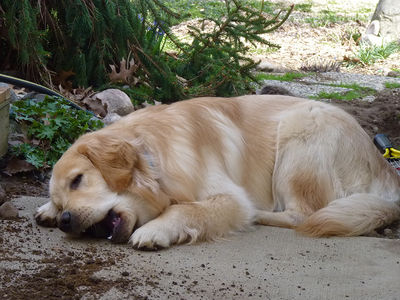
A new puppy or kitten may have accidents before they are fully house-trained. Sometimes unspayed females will urinate in inappropriate places. Intact males often mark their territory and inside the home is no exception. Pets who have never lived indoors don’t know the rules until they are trained. A percentage of older spayed female dogs sometimes leak urine. Fearful or submissive pets sometimes have accidents under stressful conditions. Soiling can occur due to separation anxiety. With cats, the problem is often a dirty litter box. Something as simple as scooping out the litter box regularly will solve the problem.
A side effect of medications can be the cause of house soiling as well as illness. Diseases such as urinary tract infections, kidney or liver disease, diabetes, can cause improper elimination.
If your pet is soiling in the home after being fully house-trained, an examination by your veterinarian is in order. Along with a complete physical, your vet will order a fecal exam and/or urinalysis. If the problem is medical, your vet may prescribe medications or in some cases, a surgical procedure.
If your pet is cleared medically, then it’s time to look for other causes.
Pets that have not been trained need to undergo training. Take your pet to an elimination area you’ve chosen after a meal, a nap or play-time. You can use words to encourage your pet. Offer a treat and praise after your pet eliminates appropriately.
Spaying or neutering your pet usually eliminates soiling problems as well as being healthier for your pet.
If the underlying cause is psychological, and you are having difficulty managing, consider consulting an animal behaviorist.
Unfortunately, many pets wind up unnecessarily discarded like so much trash when house soiling occurs. Never, under any circumstances punish your pet for appropriate elimination. It will only exacerbate the problem.
Remember, problem-solving with our pets requires time and patience, but is definitely worth the effort.
Related Articles



